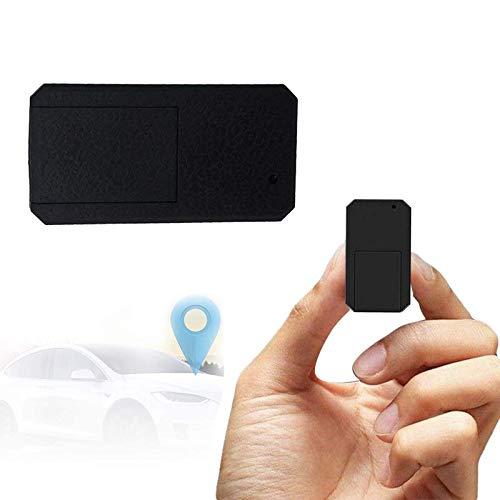Managing a car fleet in today’s fast-paced, tech-driven environment is more than just overseeing a group of vehicles. It’s about optimizing performance, reducing overheads, and ensuring complete visibility across operations. If you’re still relying on spreadsheets, manual logs, or phone calls to track your vehicles, you’re falling behind. A GPS tracker provides you with real-time insights and control over your fleet—something that is essential, not optional, in 2025.
Know Where Every Vehicle Is in Real-Time
One of the most obvious but powerful advantages of a GPS tracker is real-time vehicle tracking. At any given moment, you’ll know exactly where each car is, which route it’s taking, and how long it has been in use. This not only gives you full control but also allows you to respond quickly to unexpected situations. If a vehicle breaks down or needs to be rerouted due to traffic, you can make instant decisions. It also helps you provide accurate ETAs to customers, boosting trust and satisfaction.
Cut Fuel Costs with Smarter Routing
Fuel expenses make up a significant portion of any fleet’s operating budget. A GPS tracker helps you save on fuel by optimizing routes, identifying unnecessary detours, and tracking idle time. When drivers take the most efficient path and reduce long stops or unnecessary detours, you cut down on fuel wastage. You can also detect behaviors such as excessive speeding and harsh braking, both of which contribute to higher fuel consumption. Over weeks and months, these insights translate into thousands saved.
Improve Driver Accountability and Behavior
Installing a GPS tracking system instantly changes driver behavior—for the better. When drivers know their speed, stops, and driving patterns are being monitored, they are more likely to follow company policies and safety standards. GPS trackers help reduce reckless driving, personal use of company vehicles, and unauthorized detours. Some advanced systems even generate driver scorecards, giving managers a clear view of who is performing well and who needs improvement. This encourages a safer and more disciplined driving culture across the board.
Protect Your Vehicles from Theft
Vehicle theft can result in devastating financial loss and operational disruption. A GPS tracker acts as a 24/7 security solution by immediately notifying you if a vehicle moves outside its scheduled area or hours. If theft does occur, GPS data allows for quick vehicle recovery by law enforcement. Knowing that vehicles are constantly monitored acts as a strong deterrent to both internal misuse and external threats. In essence, your fleet becomes more secure and less vulnerable to costly incidents.
Stay on Top of Vehicle Maintenance
GPS tracking systems don’t just tell you where a vehicle is—they can also monitor its health. With built-in engine diagnostics and automated maintenance alerts, these systems help you stay ahead of breakdowns. You can track oil changes, brake wear, battery performance, and tire conditions. Scheduled maintenance not only reduces the risk of sudden breakdowns but also extends the life of your fleet vehicles. It’s a proactive way to avoid large repair bills and keep operations running smoothly.
Boost Dispatch Efficiency and Customer Experience
Speed and accuracy are everything when it comes to customer satisfaction. GPS tracking helps dispatchers assign the nearest available driver to a job or location. This results in quicker response times and allows you to give customers real-time updates on delivery or service status. You’ll be able to reduce delays, make more deliveries, and improve overall customer loyalty. In highly competitive industries like logistics, ride-sharing, and field services, this can be your biggest advantage.
Simplify Reporting and Stay Compliant
For many fleet managers, maintaining accurate records for audits, payroll, or regulatory compliance is a tedious task. GPS tracking systems automate much of this work by recording every trip, stop, and hour of operation. Whether you need data for tax purposes, vehicle logs, or compliance reports, everything is available at your fingertips. This not only saves time but ensures your documentation is accurate and audit-ready.
Lower Insurance Costs with Safer Fleets
Many insurance companies offer discounts to businesses that use GPS tracking to monitor and manage their fleet. Why? Because a GPS-monitored fleet is less likely to experience accidents, theft, or misuse. Insurers see this as a sign of responsible fleet management. By providing detailed trip and driver data, you may also defend yourself in the event of accidents or claims. Ultimately, using a GPS tracker can lower your insurance premiums and protect you from liability.
Scale Your Business with Increased Productivity
Every benefit of a GPS tracking system—fuel savings, reduced maintenance, safer driving, better dispatch—leads to one ultimate outcome: increased productivity. When you eliminate inefficiencies and stay on top of operations, you create a more scalable and profitable fleet. Your team works smarter, not harder. You make decisions faster, respond to customer needs more effectively, and reduce the number of manual tasks required to run your operations. For growing businesses, this level of control is essential.
Conclusion:
The question is no longer “Should I invest in GPS tracking?”—it’s “How much is inefficiency costing me every day I go without it?” Whether you run a small fleet of service vans or manage dozens of company cars, a GPS tracker gives you the insight, control, and peace of mind needed to succeed in a competitive marketplace. From reducing operational costs to improving customer satisfaction, the benefits are undeniable.
Visit: https://app.solpal.io/



